Transcription of The Ten Essential Shared Capabilities Supporting …
1 The Ten Essential Shared CapabilitiesSupporting person-centred approachesA learning resource for health care staffModule 1 Module 1: The Ten Essential Shared Capabilities NHS Education for Scotland 2012. You can copy or reproduce the information in this document for use within NHSS-cotland and for non-commercial educational purposes. Use of this document for commercial purposes is permitted only with the written permission of to Module 1 This module introduces you to each of the Ten Essential Shared Capabilities (10 ESCs) and acts as the foundation for all other 10 ESCs framework provides the fundamental building blocks for the education, training and continuing development of all health workers to deliver values- and rights-based and person-centred care.
2 It is designed to be applicable to all people involved with delivering health care in practice and support roles, regardless of 10 ESCs are shown in Box or professional definition. We care for each other as persons whatever role we perform, either in work, at home or in social will work through each of the ESCs in this module, defining what they mean and using reflective activities to help you think about them in relation to yourself and your experiences in practice. Learning outcomesAfter completing this module, you will be able to: describe the 10 ESCs and how they relate to health work reflect on yourself and your practice in relation to the ESCs understand how the ESCs relate to and support the delivery of health and social services policy and legislation in Scotland start to think about further developing your practice in line with the ESCs and recognise how they can help you to improve your experience of health work and the experiences of the people you work The 10 ESCs1.
3 Working in partnership2. Respecting diversity3. Practising ethically4. Challenging inequality5. Promoting recovery, well-being and self-management6. Identifying people s needs and strengths7. Providing person-centred care8. Making a difference9. Promoting safety and risk enablement10. Personal development and learningOn a surface reading, all Capabilities will probably seem sensible and may reflect your current attitude and practice. Reflecting on yourself, your role and your practice in relation to the ESCs can be challenging, but it will provide you with a greater insight into, and enable you to explore and reflect on, health work and the care provided. We use the word care here in its fullest sense, not in a narrow Working in PartnershipWorking in partnership is about the engagement of all those involved in receiving or providing health and social services, maintaining helpful and productive working relationships and bringing them to an appropriate end.
4 It is about viewing people who use services as partners in care rather than passive recipients of services. And it is about multidisciplinary team working, cross-boundary working and working with wider community in partnership involves: valuing individuals as equals in their care and treatment acknowledging the positive part that families, friends and carers can play in the person s support network engaging people as partners in care in a way that maximises their role in decision-making and making on this, think of a personal experience you have had of using health or social services. This could be a consultation with your GP or a social worker, going to a hospital appointment or Supporting a family member or friend who is using health or social did the professionals with whom you came into contact take steps to work in partnership with you?
5 What positive steps did they take?What could they have done differently to make you (or your family member or friend) feel you were an equal partner in care?Working in partnership involves developing and maintaining constructive working relationships with people who use services, carers, families, colleagues, lay people and wider community networks. It also involves working positively with any tensions created by conflicts of interest or aspiration that may arise between partners in in PartnershipThink about the responses you have made to your own experience. How do you think individuals and carers you work with would respond to the questions above?What changes could you make in your own practice to develop partnership working?
6 To work in partnership, you need to be able to explain in an understandable way your role in health work and the boundaries within which you operate. You also need to understand your role in relation to the other people with whom you work within a multidisciplinary or multi-agency team setting and know how your role contributes to the wider health and well-being of individuals, carers, colleagues and others you come into contact activity could be usefully carried out in the team in which you you have started a conversation with a stranger who knows nothing about health work and is interested in what you do. How would you describe your role what are the main things you do, and what is the purpose of the service in which you work?
7 Who are the key people you work with and alongside?How does the team or service you work with link with other health or social services and agencies and wider community networks?Partnership working is key to delivering safe, effective and person-centred health care, in Supporting people to participate fully in their care and in working effectively with families and carers. Benefits of active partnership working include the building Positive outcomes are much more likely to occur if you have a firm base for your relationship with people who use services and, when relevant, their carers and family members. Relationships are built from listening and responding to other people s points of view and Working in Partnershipvaluing the other people within the partnership as equals with valid services These develop from a willingness to listen to the needs of the person and their carers/families, responding appropriately to expressed needs by family carers and making this the focus of the professional decisions To be effective in the long term, care decisions need to be based in the real world and need to consider what is achievable in particular settings.
8 It may be reasonable to expect professional staff to respond in a certain way, but this may not be a reasonable expectation of a parent or family member. Conflict resolution Conflicts can and do arise whether we work in partnership or not, but partnership working gives us opportunities to build relationships, understand each other s point of view and resolve conflict issues have you come across that present barriers to partnership working? Gates and Barr1 suggest that issues that may pose barriers to partnership working include perceived difference in interests, differing understanding, different values, different styles and differing back to the issues you identified that could be barriers to partnership working and, using the headings from Gates and Barr, see if your issues fit within this framework HeadingIssues you identifiedInterestsUnderstandingValuesSt yleOpinionWe will continue to explore working in partnership while looking at the other ESCs.
9 Several of the modules in this learning resource will also help you to reflect on and develop your capability in working in partnership , particularly: Module 2 Values-based practice Module 3 Involving people Module 5 Inclusion, assets and outcome-Respecting DiversityDelivering equitable, person-centred care requires culturally competent health and social services that aim to eliminate discrimination and promote equality of opportunity for everyone. Most professional frameworks acknowledge the importance of respecting is about creating a fairer society in which everyone can participate and have the opportunity to fulfil their potential and no one is unfairly disadvantaged. Diversity is about valuing people s differences and addressing their needs and diversity means you need to be aware of, and take steps to challenge, inequalities and ensure that the care you provide takes account of the unique background and life experiences of each are the specific needs of diverse service users identified in the service in which you work?
10 What processes are in place to support this?How does the service respond to these needs?What is your role in this response?Respecting diversity is about working in partnership with people who use services, carers, families and colleagues to provide care and interventions that not only make a positive difference, but also do so in ways that respect and value diversity, including age, culture, disability, gender, gender identify, race, religion or belief and sexual DiversityConsider the following statement: Our service is equal because we treat everyone the same . What do you think about this statement? Record your thoughts here so that you can reflect on them as we explore diversity in more detail later in this other modules in this learning resource will help you to reflect on and develop your capability in respecting diversity , particularly Module 4 Equality and diversity: respecting EthicallyPractising ethically means: recognising the rights and hopes of individuals and their families observing codes of practice and good practice guidelines working within the law.

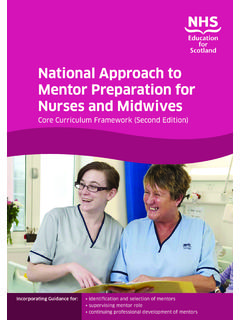
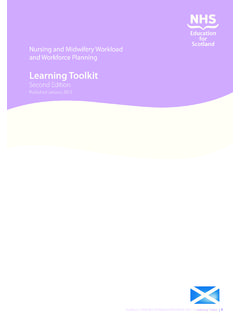
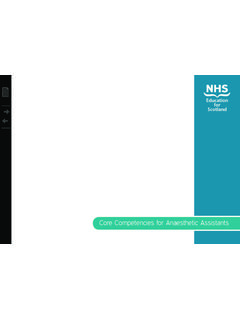
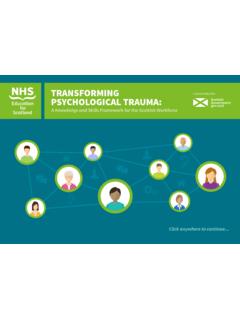
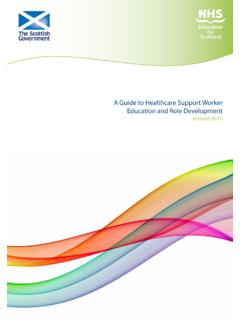



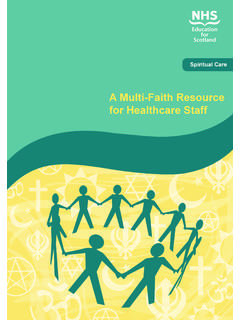

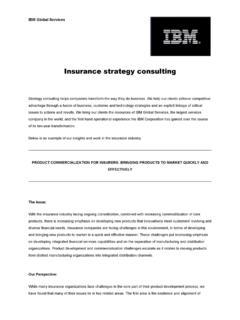




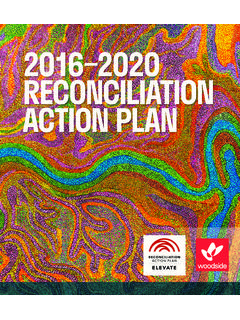
![Welcome [www.npcc.org]](/cache/preview/7/0/4/6/3/8/1/3/thumb-70463813e70cbd881cdccb4a4b4e1de9.jpg)